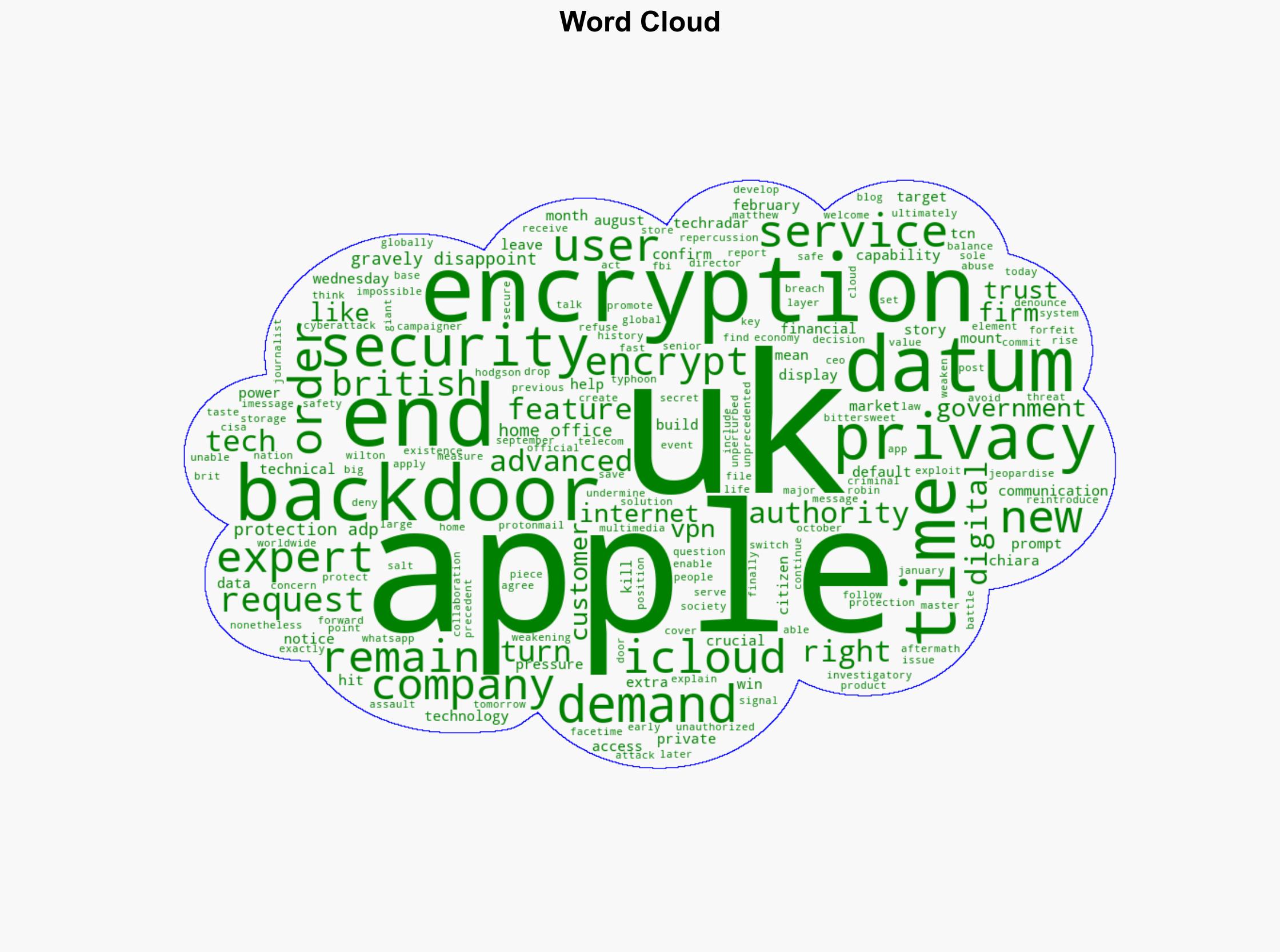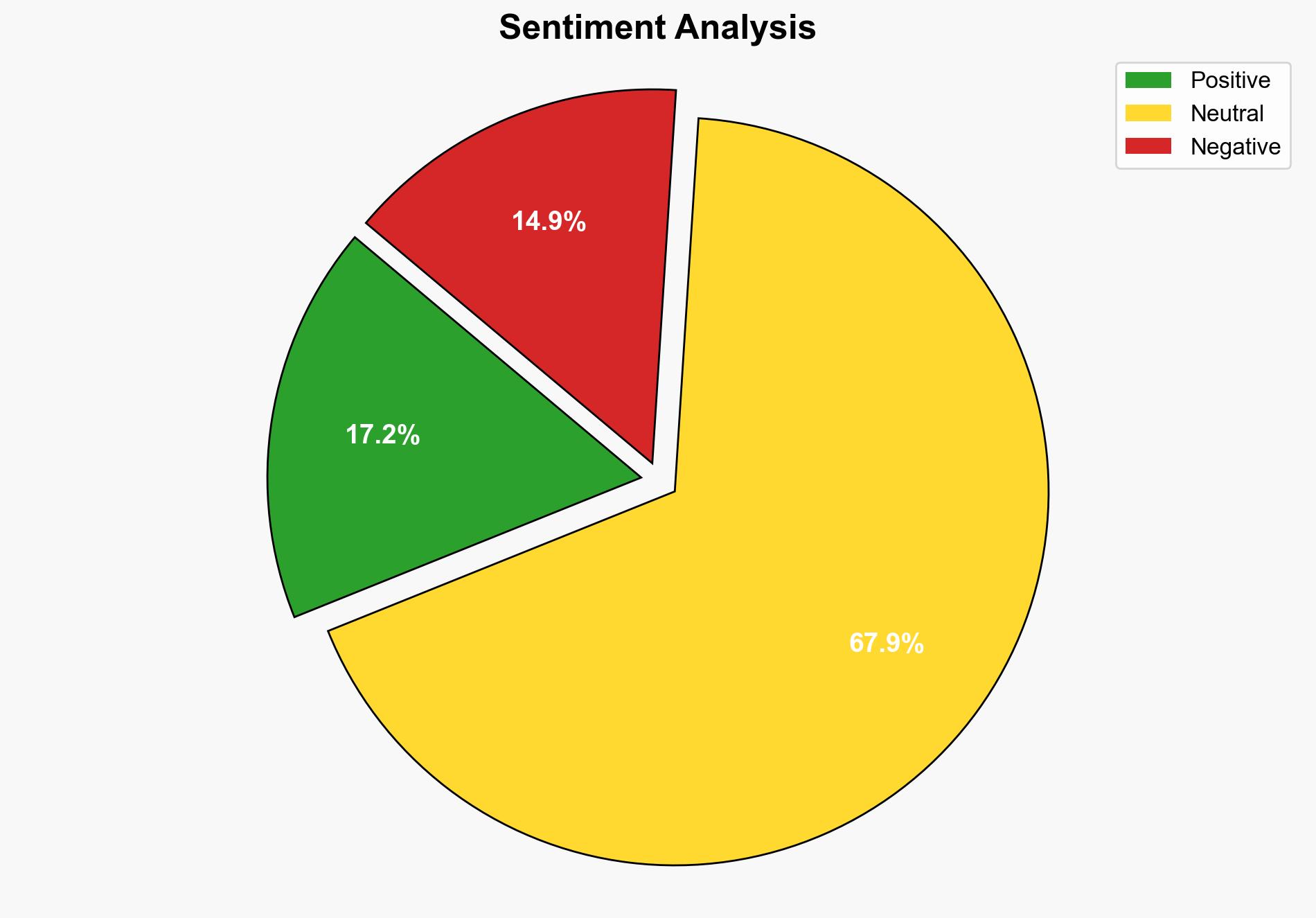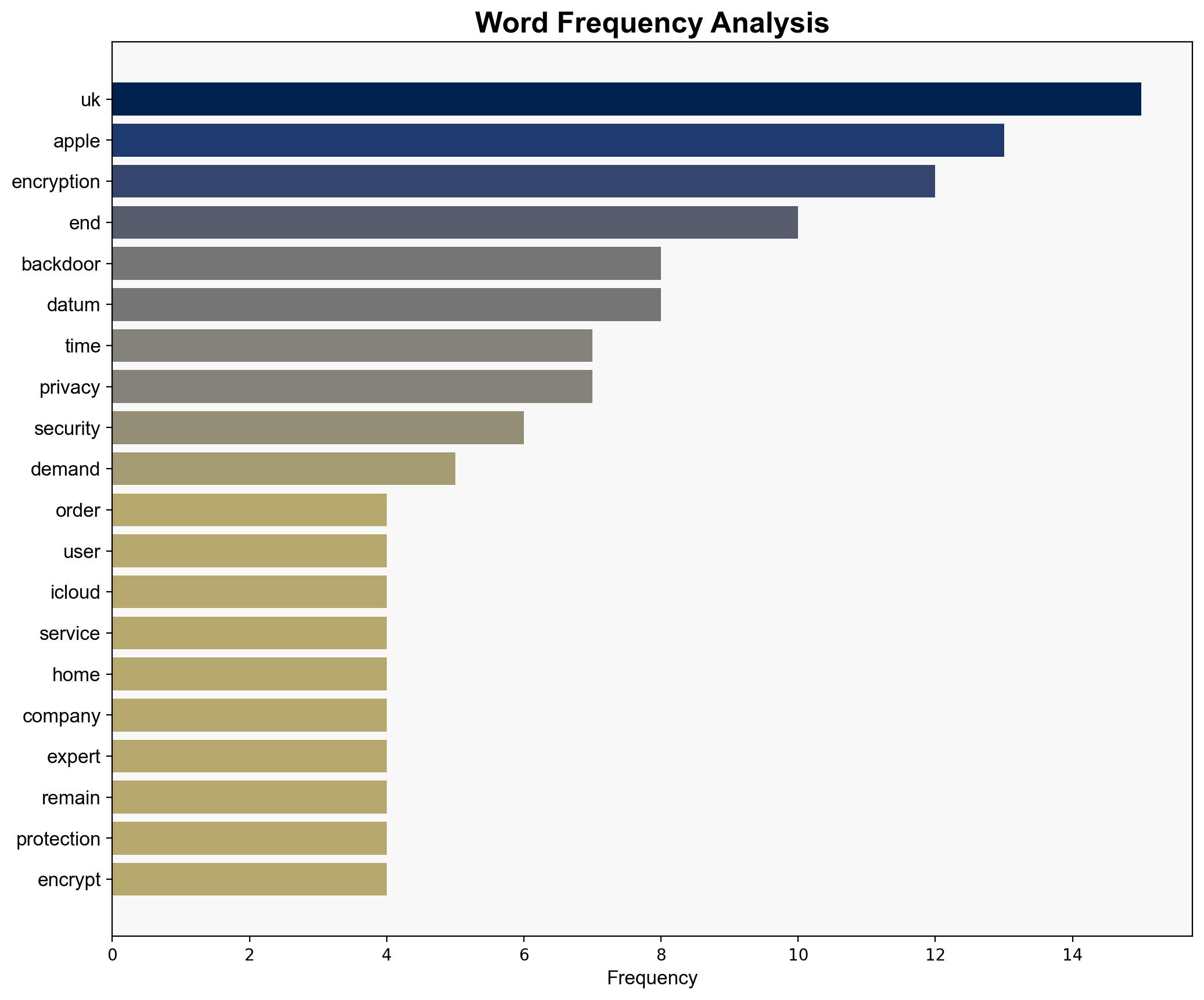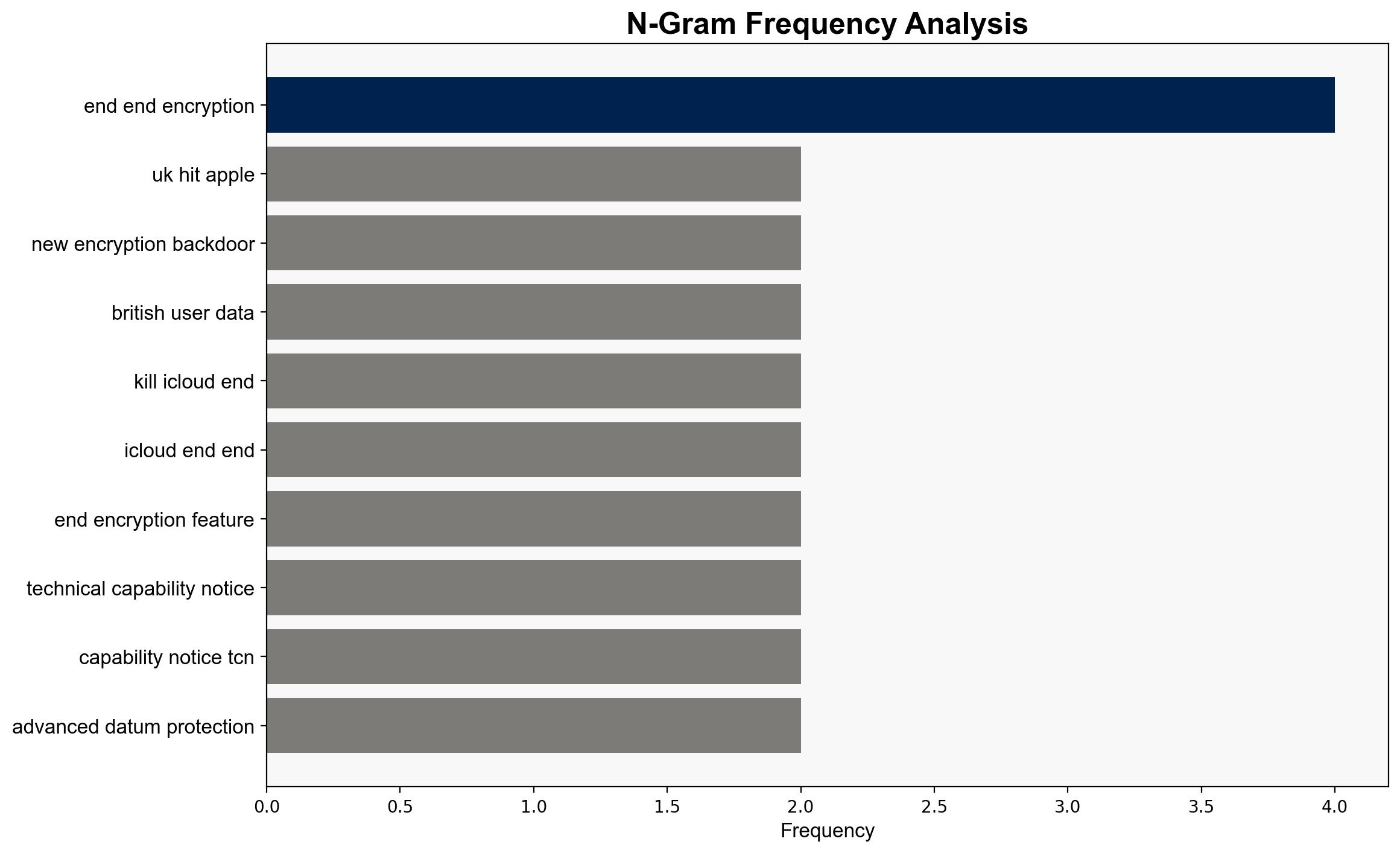Gravely disappointed Apple hit by encryption backdoor order again – TechRadar
Published on: 2025-10-03
Intelligence Report: Gravely disappointed Apple hit by encryption backdoor order again – TechRadar
1. BLUF (Bottom Line Up Front)
The UK government’s renewed demand for an encryption backdoor from Apple highlights a persistent tension between national security interests and individual privacy rights. The most supported hypothesis suggests that the UK is prioritizing national security over privacy, potentially setting a precedent that could impact global digital privacy norms. Confidence level: Moderate. Recommended action: Monitor developments closely and engage in dialogue with stakeholders to balance security and privacy concerns.
2. Competing Hypotheses
1. **Hypothesis A**: The UK government is primarily motivated by national security concerns, seeking to prevent criminal activities by gaining access to encrypted data.
2. **Hypothesis B**: The UK government’s actions are driven by a desire to exert control over tech companies and set a global precedent for government access to encrypted data.
Using the Analysis of Competing Hypotheses (ACH) 2.0, Hypothesis A is more supported due to the historical context of governments prioritizing security measures post-terrorism incidents. However, Hypothesis B cannot be dismissed as it aligns with broader trends of increasing governmental control over digital spaces.
3. Key Assumptions and Red Flags
– **Assumptions**: It is assumed that the UK government’s primary motivation is security rather than control. Another assumption is that Apple will continue to resist such demands to maintain its global privacy stance.
– **Red Flags**: The lack of transparency from the UK government regarding the specifics of the order raises concerns about potential overreach. The absence of a clear legal framework for such demands could lead to arbitrary enforcement.
4. Implications and Strategic Risks
– **Economic Risks**: Compliance with the order could undermine consumer trust in Apple, affecting its market share in the UK and globally.
– **Cybersecurity Risks**: Creating a backdoor could introduce vulnerabilities exploitable by malicious actors, potentially leading to widespread data breaches.
– **Geopolitical Risks**: This action may strain UK relations with tech companies and privacy advocates, impacting international cooperation on cybersecurity.
– **Psychological Risks**: Public perception of government overreach could lead to increased skepticism and resistance to governmental policies.
5. Recommendations and Outlook
- **Mitigation**: Encourage dialogue between tech companies, government, and privacy advocates to develop a balanced approach to encryption and security.
- **Best Case Scenario**: A collaborative framework is established that addresses security needs without compromising individual privacy rights.
- **Worst Case Scenario**: The precedent leads to a global erosion of digital privacy, with governments worldwide adopting similar measures.
- **Most Likely Scenario**: Continued legal and public battles over encryption policies, with incremental changes rather than sweeping reforms.
6. Key Individuals and Entities
– **Robin Wilton**: Senior Director, Internet Trust, Internet Society
– **Matthew Hodgson**: CEO, Element
7. Thematic Tags
national security threats, cybersecurity, counter-terrorism, regional focus




